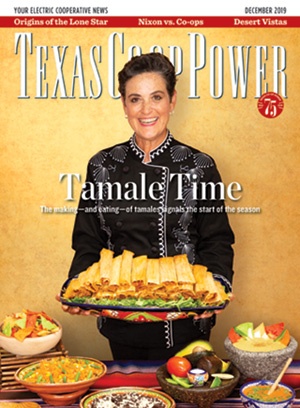With credits to burn during my senior year at the University of Texas, I enrolled in a class on the history of rock ’n’ roll, expecting to listen to Led Zeppelin and ride an easy A into the burnt orange sunset. When the professor played a song from a scratchy blues record from 1926 by an artist I had never heard of, I realized I was in for more than I bargained for. The class turned out to be tough, but it set fire to my blues-loving soul.
That track was Match Box Blues by Blind Lemon Jefferson. It was a raw, visceral song with a clanging guitar and haunting vocals. I had never heard anything like it, and when I learned Jefferson was from Texas, I was hooked. My love for the blues drove me to East Texas and historic Camp Street in Crockett.
When I found Camp Street, a few blocks from the Houston County Courthouse square, I wasn’t sure if I was in the right spot until I noticed a mural of Jefferson painted on a brick wall. Next to Jefferson were more musicians, including T-Bone Walker, Big Mama Thornton and Sam “Lightnin’ ” Hopkins, who all played in Crockett when it was a stop for blues artists traveling the Chitlin’ Circuit between Houston and Dallas.
In the 1930s, Camp Street hummed as one of the most vibrant business districts in East Texas. Both sides of the street were lined with businesses: a beauty parlor, an all-night laundry, a shoe repair shop and a juke joint named the Jolly Joy. And there in the middle of the action, you’d find the Starlight—now called Camp Street Café, the town’s only remaining blues-era stalwart.
The quaint building with its red sheet metal exterior and large front porch was built in 1931 by a local rancher named V.H. “Hoyt” Porter. On the porch were three doors: Through the middle door was a barbershop and through the left door, a pool hall. Through the right door was a café and taxi stand that featured a dice table and bar. On any given night in the 1940s, you might find bluesman Lightnin’ Hopkins playing for tips. In the ’50s or ’60s, you might find B.B. King or Fats Domino enjoying a beer after a show at the nearby Paradise Inn.
The café was closed for many years, but in 2008 it got a second chance. Porter’s grandsons, Guy and Pipp Gillette, bought the property and turned it into a listening room to honor Crockett’s musical legacy. Since then, this small stage has hosted artists including Michael Martin Murphey, Kinky Friedman and Ruthie Foster. On the night of my visit, Pipp, a singer and songwriter himself, was scheduled to perform.
I found a room packed with people at small square tables enjoying wine (it’s BYOB) and munching on snacks from a counter in the back. When Pipp took the stage, a hush fell over the crowd. For the next hour or so, Pipp played one song after another, woven together with his stories and meandering thoughts. The experience epitomized why I love a good listening room, as the only sounds coming from the crowd were applause and laughs at Pipp’s jokes.
As I enjoyed the show, I imagined the room in decades past, as the greatest blues legends played guitar and told stories of the road. I left feeling anything but blue.
For more about the blues, read Texas: A Blues State in our March 2019 issue.

